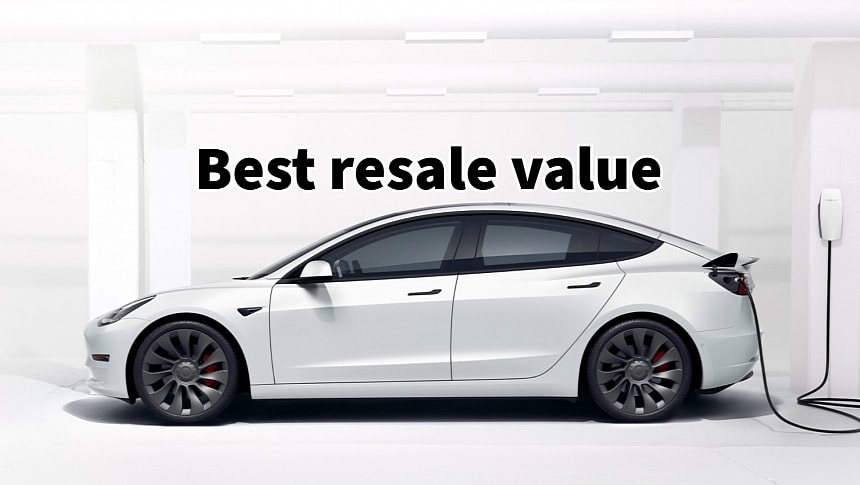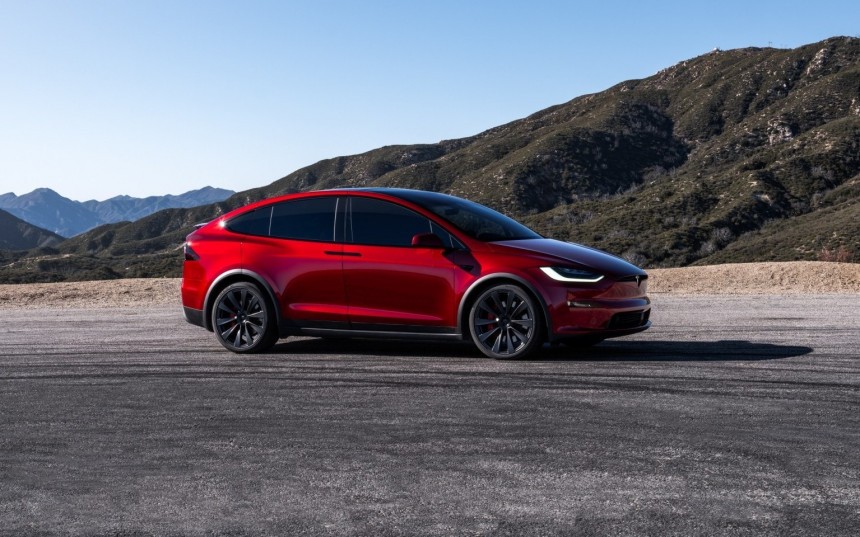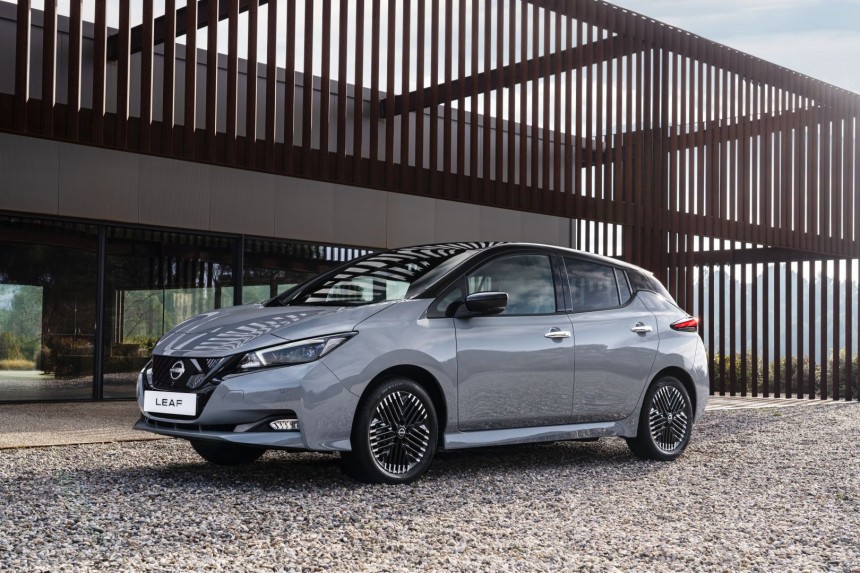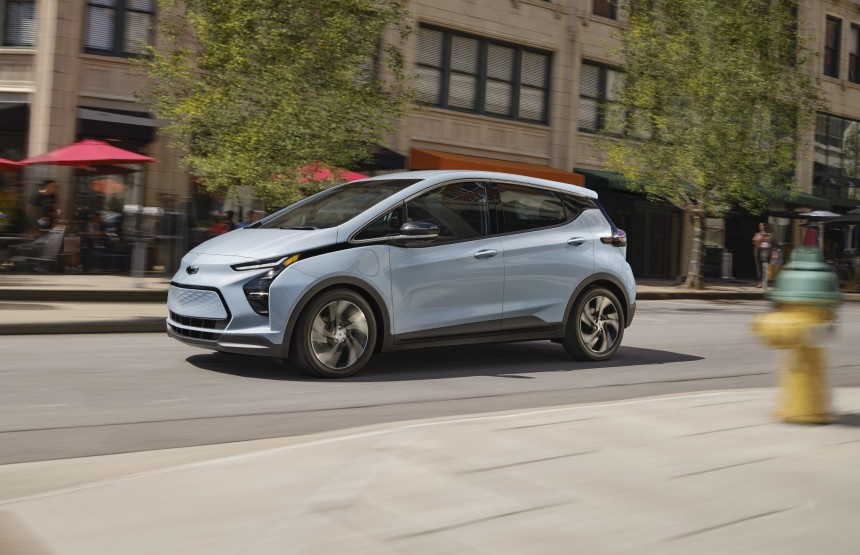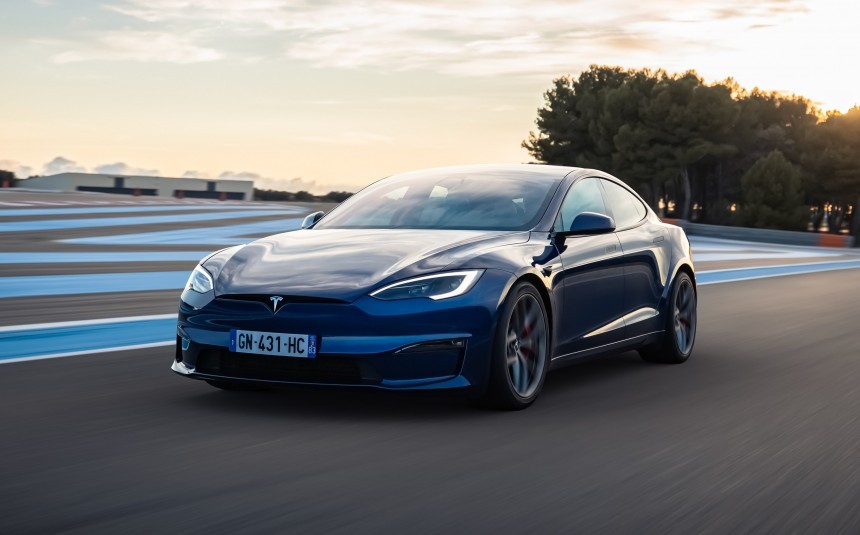Vehicle depreciation is one of the most important criteria when choosing your next new vehicle. That's because it directly affects its resale value and how much it counts toward your next purchase. Here are the electric vehicles with the best resale value after five years.
There are many things that you need to take into account when you choose your next vehicle. You may look at the brand, size, price, operating costs, status, desirability, and others. Everybody is different, and different criteria are crucial to each one. Some people are more interested in subjective details like design or color. Others are pragmatics, analyzing costs from the purchase to the resale. Whatever the case, how much money you get back when you sell your car is important.
The resale value of your car dictates how easy it is for you to finance the next vehicle purchase. The resale value is basically the opposite of depreciation, which shows how much value your vehicle loses over the years. Typically, more expensive cars lose more of their original value in a shorter time. This is one reason why electric vehicles appear to lose more value over time than their ICE equivalents.
The resale value and depreciation depend on many factors, but they ultimately reflect how desirable your vehicle is for other people. Depreciation is also influenced by factors like mileage, age, technical and cosmetic condition, service history, and others. It's safe to say that vehicles that are more in demand will hold their value better than those that people avoid because of known problems or other reasons.
New car prices influence resale value because you cannot sell a car for more than the price of a new one, even if you paid double for it. Tesla Model X, for instance, sold for $121,000 in the second half of 2022, whereas today, a new one is only $77.990. If you bought one in 2022, expect the price cuts to affect the depreciation significantly. Your Model X would've lost over 55% of its value in less than two years.
It's not only the new price that's affecting your car's value; it's also the incentives available to buyers of new EVs. In the example above, the Model X qualifies for a $7,500 federal tax credit, and some states can add more to it. It's hard to sell a 2022 Tesla Model X for $67,000 when people can buy a new one for only $3,000 more. If you want to sell it, you must lower the price, making the resale value take a hit.
But for this to work, the used market needs to be functional, and that means having enough electric vehicles, among other things. This hasn't been the case until recently. First, because people who paid a lot for their EVs don't want to sell them yet. Second, because EVs have been extremely reliable, and Tesla used over-the-air updates to keep them updated with new features. This made owners less willing to upgrade. With other carmakers reluctantly selling EVs, the used market didn't have many EVs to sell.
However, things are changing, as roughly 10% of the cars sold in the US are now battery-powered. The fact that many companies are retiring their early EV fleet also adds to the pool of available EVs in the market. Hertz, for instance, has sold tens of thousands of Teslas since the year's start and continues to do so. These EVs are usually well-maintained and have competitive prices. Considering the offer and current prices, it's probably the best time to buy a used electric vehicle.
A recent iSeeCars study shows that electric vehicles have the worst depreciation across all major vehicle types. On average, EVs lose more than 49% of their value after five years. Meanwhile, the overall industry averages less than a 39% five-year depreciation rate. Experts believe the trend will continue until EVs don't require incentives to sell and people gain confidence in their long-term ownership costs. Using the latest iSeeCars data, I made a list of the EV models with the best resale value after five years.
Five-year resale value in 2023: 57.1%
Average five-year-old price: $29,526
Although the five-year resale value of the Tesla Model 3 has dropped compared to last year's value, it still retains the top-spot position. The Tesla Model 3 is one of the most popular used electric vehicles, owing to a combination of compelling features, attractive prices, and a reasonable amount of cars on the used market.
Tesla recently launched the refreshed Model 3 with more compelling features and quality improvements. This will likely put new pressure on the prices of the used Model 3 as more people will want to upgrade. I don't expect the used Model 3 to lose its appeal, though, considering that it's the most affordable model of a brand that dominates the EV market.
People who buy a used Model 3 will still benefit from the latest software updates and the new features Tesla has introduced over the years. The fact that the battery pack still has three years of warranty left gives potential buyers peace of mind. Studies show that Tesla batteries are designed to last 10-15 years with reasonable degradation, and there are no known problems with the Model 3.
Even though there was nothing wrong with the 2019 Model 3, Tesla brought improvements in November 2020, so it might be worth looking for a more recent model. Tesla removed ultrasonic sensors from the new Model 3s in 2022, but recent software updates vastly improved the experience for vision-only EV owners. Since these improvements are not yet available on cars with ultrasonic sensors, choose your model year carefully.
Five-year resale value in 2023: 50.1%
Average five-year-old price: $52,500
The Model X in the example above outlined the least favorable scenario, when a car bought when the prices were at their highest was sold in a market influenced by the deep price cuts of last year. However, not all vehicles on the market fit this scenario, which recommends the Tesla Model X among the cars with the best resale value after five years.
The five-year resale value dropped from 50.1% in 2023 to 44.8% in 2024, and a look at the current prices gives you a good idea of why. For the first time, the Tesla Model X has a variant that qualifies for the federal EV tax credit, making buying new a lot more compelling.
Tesla updated the Model X alongside the Model S in 2021, so it's easy to find a used car with the latest features. The update brought slight changes on the outside but big improvements under the hood and in the cabin. It also came with the coveted Plaid variant, one of the fastest Tesla models you can buy.
The refreshed Model X comes with Hardware 4 Autopilot computer and sensor suite, which Tesla only recently made the default hardware configuration across its lineup. The revamped interior brought not only the yoke steering but also important infotainment and comfort features.
Five-year resale value in 2023: 49.2%
Average five-year-old price: $17,687
Nissan jumpstarted the electric revolution with the Leaf in 2011 but somehow lost its way, corrupted by its Japanese peers' risk aversion. Tesla launched the Model S in 2012 and continued to innovate at a neck-breaking speed, leaving Nissan in the dust. The second generation of the Leaf, introduced in 2017, was too little too late. Seven years later, it has nothing to recommend it except for the price, and Nissan is considering retiring it without a successor.
Although the Nissan Leaf has started the legend that EV batteries die and are expensive to replace, this was only the case with the first-generation model. That one lacked a proper thermal management system for the battery pack, which caused many batteries to fail prematurely. However, Nissan corrected the situation, and battery reliability improved tremendously. The second-generation Leaf has no known weaknesses except for the limited range.
The Nissan Leaf starts new at $28,140 with a 40-kWh battery or $36,190 for the 60-kWh model, and it qualifies for a $3,750 tax credit. Its range is abysmal, though, with the 40-kWh model at 149 miles, whereas the more expensive variant can go 212 miles on a charge.
You can find used five-year old Nissan Leaf EVs for as low as $15,000, with an average price of $17,687. This makes the Leaf an interesting offer if you're on a tight budget. Considering the update in 2022 and the phasing out of the model, the Leaf will probably drop more in price by the end of the year.
Five-year resale value in 2023: 48.9%
Average five-year-old price: $18,120
Once touted as a Tesla killer, the Chevrolet Bolt EV has a strange story, being affected by defective batteries supplied by LG. GM tried to avoid a recall but had no choice after several battery fires were reported in 2021. Just when nobody thought the Bolt could be salvaged as a nameplate, it emerged from the ashes as the unlikely best-selling EV in GM's portfolio.
Part of Bolt's late success was owed to very aggressive pricing, which made it the most affordable EV on the US market after August 2022. Back then, Chevrolet cut prices from $31,500 to $25,600 to make the ailing EV more attractive. It raised the price slightly in January 2023 to $26,595, which allowed Bolt to still claim the title of most affordable EV.
The battery fire recall has a silver lining to it, and that is that you can find used 2017-2022 Chevy Bolt EVs with a brand-new battery. Because of this, the Chevy Bolt is in high demand, and it will only get harder to come by now. In June 2023, Chevrolet stopped replacing the batteries for 2020-2022 Bolt EVs and instead installed diagnostics software to tell if the battery needs replacement or not.
If you are in the market for a Chevrolet Bolt, ask for proof that the battery pack was replaced. Remember that although the Bolt has a decent range, at 259 miles, its fast-charging capabilities are limited to 50 kW. In other words, it's slow, and you'll only add about 100 miles (161 kilometers) of range in half an hour of charging.
Five-year resale value in 2023: 44.5%
Average five-year-old price: $44,798
The Model S was Tesla's first volume EV and best-selling model until the Model 3 took over the crown in 2018. The EV maker got many things right with the Model S, proving to the world that electric vehicles can be a worthy alternative to gas-powered cars. This was a bold statement, right in the heart of the luxury segment. Its success put Tesla on the map and was instrumental in accelerating EV adoption.
However, not everything was golden with the Model S, which recorded a relatively high number of battery failures in the 2012-2015 model years. To make matters worse, these batteries started failing after the warranty ended. If you're in the market for a reasonably-priced Tesla Model S, stay away from these model years, because they can still hide nasty surprises.
Toward the end of 2015, Tesla changed the battery design, and no serious problems have been reported since then. Tesla revamped the Model S in 2021, offering a comprehensive upgrade alongside the Model S Plaid, still the most powerful and fastest Tesla EV.
The refreshed Tesla Model S is a technological marvel, although sales have not reflected this. This may have had something to do with the price, which is why Tesla lowered it significantly in the second half of 2023 to $74,990. On April 19, Tesla cut another $2,000 from the Model S's price. It is good for potential buyers but bad for people trying to sell their cars.
The resale value of your car dictates how easy it is for you to finance the next vehicle purchase. The resale value is basically the opposite of depreciation, which shows how much value your vehicle loses over the years. Typically, more expensive cars lose more of their original value in a shorter time. This is one reason why electric vehicles appear to lose more value over time than their ICE equivalents.
The resale value and depreciation depend on many factors, but they ultimately reflect how desirable your vehicle is for other people. Depreciation is also influenced by factors like mileage, age, technical and cosmetic condition, service history, and others. It's safe to say that vehicles that are more in demand will hold their value better than those that people avoid because of known problems or other reasons.
Do electric vehicles have good resale value?
Electric vehicles held their value very well until 2022 because there was a huge demand and limited supply in the market. As the most desirable EV brand, Tesla bucked the trend. In 2022, people reported selling their used Teslas for more than they paid for them. However, things changed starting in 2023, when Tesla abruptly cut prices.New car prices influence resale value because you cannot sell a car for more than the price of a new one, even if you paid double for it. Tesla Model X, for instance, sold for $121,000 in the second half of 2022, whereas today, a new one is only $77.990. If you bought one in 2022, expect the price cuts to affect the depreciation significantly. Your Model X would've lost over 55% of its value in less than two years.
It's not only the new price that's affecting your car's value; it's also the incentives available to buyers of new EVs. In the example above, the Model X qualifies for a $7,500 federal tax credit, and some states can add more to it. It's hard to sell a 2022 Tesla Model X for $67,000 when people can buy a new one for only $3,000 more. If you want to sell it, you must lower the price, making the resale value take a hit.
Are used EV prices falling?
Looking at the bigger picture, people see different outcomes depending on where they stand. Some say that falling resale value threatens EV adoption because people will avoid buying a car that depreciates faster. Others, on the contrary, see that cheaper used EVs mean more people will afford to buy one, accelerating adoption. Very few people would return to a gas car after driving an EV, meaning many who bought a used EV will switch it for a new one.But for this to work, the used market needs to be functional, and that means having enough electric vehicles, among other things. This hasn't been the case until recently. First, because people who paid a lot for their EVs don't want to sell them yet. Second, because EVs have been extremely reliable, and Tesla used over-the-air updates to keep them updated with new features. This made owners less willing to upgrade. With other carmakers reluctantly selling EVs, the used market didn't have many EVs to sell.
However, things are changing, as roughly 10% of the cars sold in the US are now battery-powered. The fact that many companies are retiring their early EV fleet also adds to the pool of available EVs in the market. Hertz, for instance, has sold tens of thousands of Teslas since the year's start and continues to do so. These EVs are usually well-maintained and have competitive prices. Considering the offer and current prices, it's probably the best time to buy a used electric vehicle.
A recent iSeeCars study shows that electric vehicles have the worst depreciation across all major vehicle types. On average, EVs lose more than 49% of their value after five years. Meanwhile, the overall industry averages less than a 39% five-year depreciation rate. Experts believe the trend will continue until EVs don't require incentives to sell and people gain confidence in their long-term ownership costs. Using the latest iSeeCars data, I made a list of the EV models with the best resale value after five years.
1. Tesla Model 3
Five-year resale value in 2024: 53.3%Five-year resale value in 2023: 57.1%
Average five-year-old price: $29,526
Tesla recently launched the refreshed Model 3 with more compelling features and quality improvements. This will likely put new pressure on the prices of the used Model 3 as more people will want to upgrade. I don't expect the used Model 3 to lose its appeal, though, considering that it's the most affordable model of a brand that dominates the EV market.
People who buy a used Model 3 will still benefit from the latest software updates and the new features Tesla has introduced over the years. The fact that the battery pack still has three years of warranty left gives potential buyers peace of mind. Studies show that Tesla batteries are designed to last 10-15 years with reasonable degradation, and there are no known problems with the Model 3.
Even though there was nothing wrong with the 2019 Model 3, Tesla brought improvements in November 2020, so it might be worth looking for a more recent model. Tesla removed ultrasonic sensors from the new Model 3s in 2022, but recent software updates vastly improved the experience for vision-only EV owners. Since these improvements are not yet available on cars with ultrasonic sensors, choose your model year carefully.
2. Tesla Model X
Five-year resale value in 2023: 44.8%Five-year resale value in 2023: 50.1%
Average five-year-old price: $52,500
The five-year resale value dropped from 50.1% in 2023 to 44.8% in 2024, and a look at the current prices gives you a good idea of why. For the first time, the Tesla Model X has a variant that qualifies for the federal EV tax credit, making buying new a lot more compelling.
Tesla updated the Model X alongside the Model S in 2021, so it's easy to find a used car with the latest features. The update brought slight changes on the outside but big improvements under the hood and in the cabin. It also came with the coveted Plaid variant, one of the fastest Tesla models you can buy.
The refreshed Model X comes with Hardware 4 Autopilot computer and sensor suite, which Tesla only recently made the default hardware configuration across its lineup. The revamped interior brought not only the yoke steering but also important infotainment and comfort features.
3. Nissan Leaf
Five-year resale value in 2023: 44.4%Five-year resale value in 2023: 49.2%
Average five-year-old price: $17,687
Although the Nissan Leaf has started the legend that EV batteries die and are expensive to replace, this was only the case with the first-generation model. That one lacked a proper thermal management system for the battery pack, which caused many batteries to fail prematurely. However, Nissan corrected the situation, and battery reliability improved tremendously. The second-generation Leaf has no known weaknesses except for the limited range.
The Nissan Leaf starts new at $28,140 with a 40-kWh battery or $36,190 for the 60-kWh model, and it qualifies for a $3,750 tax credit. Its range is abysmal, though, with the 40-kWh model at 149 miles, whereas the more expensive variant can go 212 miles on a charge.
You can find used five-year old Nissan Leaf EVs for as low as $15,000, with an average price of $17,687. This makes the Leaf an interesting offer if you're on a tight budget. Considering the update in 2022 and the phasing out of the model, the Leaf will probably drop more in price by the end of the year.
4. Chevrolet Bolt EV
Five-year resale value in 2023: 42.4%Five-year resale value in 2023: 48.9%
Average five-year-old price: $18,120
Part of Bolt's late success was owed to very aggressive pricing, which made it the most affordable EV on the US market after August 2022. Back then, Chevrolet cut prices from $31,500 to $25,600 to make the ailing EV more attractive. It raised the price slightly in January 2023 to $26,595, which allowed Bolt to still claim the title of most affordable EV.
The battery fire recall has a silver lining to it, and that is that you can find used 2017-2022 Chevy Bolt EVs with a brand-new battery. Because of this, the Chevy Bolt is in high demand, and it will only get harder to come by now. In June 2023, Chevrolet stopped replacing the batteries for 2020-2022 Bolt EVs and instead installed diagnostics software to tell if the battery needs replacement or not.
If you are in the market for a Chevrolet Bolt, ask for proof that the battery pack was replaced. Remember that although the Bolt has a decent range, at 259 miles, its fast-charging capabilities are limited to 50 kW. In other words, it's slow, and you'll only add about 100 miles (161 kilometers) of range in half an hour of charging.
5. Tesla Model S
Five-year resale value in 2023: 40.5%Five-year resale value in 2023: 44.5%
Average five-year-old price: $44,798
However, not everything was golden with the Model S, which recorded a relatively high number of battery failures in the 2012-2015 model years. To make matters worse, these batteries started failing after the warranty ended. If you're in the market for a reasonably-priced Tesla Model S, stay away from these model years, because they can still hide nasty surprises.
Toward the end of 2015, Tesla changed the battery design, and no serious problems have been reported since then. Tesla revamped the Model S in 2021, offering a comprehensive upgrade alongside the Model S Plaid, still the most powerful and fastest Tesla EV.
The refreshed Tesla Model S is a technological marvel, although sales have not reflected this. This may have had something to do with the price, which is why Tesla lowered it significantly in the second half of 2023 to $74,990. On April 19, Tesla cut another $2,000 from the Model S's price. It is good for potential buyers but bad for people trying to sell their cars.
